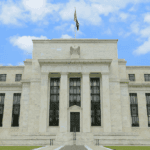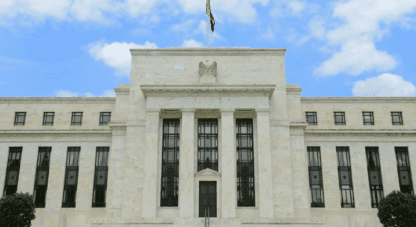Mental illness is real, and it’s an unmitigated horror. Those who suffer from it and those who love and/or care for them can attest to the over-the-top level of difficulty involved. Yet mental illness doesn’t just wreak havoc by its presence. It also destroys through association.
The Soviet Union used accusations of mental illness extensively. Communism as interpreted by the man in power was defined as the sole measure of true sanity, so anyone who disagreed with it was ipso facto insane. The accused could be locked up, experimented on, given mind-bending drugs, and all kinds of other abuses in the name of treating his insanity—all without having to charge him with any kind of real crime. In short, it was the ultimate tool for destroying one’s political enemies.
We’re nearly there in America now. Civil law is at war with natural law. People are legally required to think and act in violation of long-established and salutary order and rationality. If you don’t believe in or support these things now required by law, you are a blight on the public weal, and you should be nullified by any means possible.
One of the best of such means is to label a person insane. Then, “in the name of compassion,” the accused must be treated by the medical establishment with all the means at hand so they can be “healed.” What does that mean? George Orwell knew. The final sentence in his book 1984 describes it perfectly.
In such manner are the horrors of the asylum meted out to the most sane people in society. Such people have been called deplorable, intolerant, bigoted, hateful, racist, sexist, homophobic, anti-immigrant, nationalist, isolationist, and much more—and much worse. Ironically, many of these terms far better describe the accusers than their targets, who are often models of compassion and good will. But such projection will certainly increase as those of a traditional moral bent are increasingly called insane by their radical opponents.
Many of us, as we look at our government, our institutions, and our leaders, feel we have gone through the looking glass. Certainly as you read or listen to the news, you might feel that the world has lost its collective mind. People in charge appear to be living upside down.
But there’s a saying: crazy like a fox. It applies. We’re not watching party politics in which good people disagree on means but agree on end. We’re watching a revolution in progress—a revolution against the rule of law by people who want to rule without restriction of law, specifically the Constitution.
David touches on this lust for power in the Weekly Commentary this week, but you’ll see analysis of it in other publications on other weeks. It’s the elephant in the room for America—one that Americans seem intent on ignoring. Not here. You’ll find in the below communications a daily or weekly dose of reality. We’ll all need that as the world around us loses more and more of its touchstones. Misery might love company, but sanity certainly does.
Key Takeaways:
- Politics and reality—ships in the night
- Monetary sanity and America—ditto
- The Fed and Stagflation—you guessed it
- When charting markets is like riding a wild mustang
The McAlvany Weekly Commentary: What Will Happen When China Devalues?
David and Kevin discuss the enormous economic pressures on China. To avoid the societal unrest that typically accompanies widespread unemployment, China might opt to put its idle young men to work in the military. This is a common tack taken by countries faced by such situations, and could have serious repercussions for countries in the region and countries that support Taiwan (including the US). The hosts also discuss the response to economic difficulty in China (and most of the rest of the non-Western world) by citizens. Gold buying is reaching fever pitch, even as gold elicits yawns and no-thank-yous in the West. When Western buyers join the trend, upward pressure on the gold price will likely increase greatly. The hosts also discuss the Western dalliance with make-believe-as-truth. “There is a massive crisis of confidence brewing as we toy with reality and pretend it’s something other than it is. Politicians on both sides of the aisle have eschewed budget management in favor of power politics… It was Nietzsche who described it best, and I think very clearly, ‘The world is the will to power and nothing else.’”
Credit Bubble Bulletin: Instability
Instability indeed. “Does a sound system embolden unprecedented leveraged speculation – massive ‘repo’ borrowings, ‘carry trades,’ ‘basis trades,’ margin debt and hundreds of trillions of derivatives? Is it healthy to have tens of millions actively gambling on stocks and options? Answers to these questions seem rather obvious. Is this how Capitalism is supposed to operate, or has something gone horribly astray? The bottom line is that the U.S.—and, really, the world—has been suffering from acute and prolonged monetary disorder. The runaway expansions of central bank balance sheets and speculative leverage have created tens of trillions of pernicious ‘money’—liquidity fueling historic asset bubbles, inequality, inflation, and all sorts of maladies. There’s been nothing similar for almost a century.” Leading into this incisive analysis, Doug summarizes the developments for the week in such things as the Japanese yen, the Nasdaq100, and Treasury yields. He then adduces that, “Powell is a dove. That was likely settled for good Wednesday.” And as markets channel Cuba Gooding Jr.’s “show me the money!” the Fed Chair is obviously anxious to comply—which helps to explain how we’ve gotten into the situation described initially in this section.
Hard Asset Insights: Stagflationary Winds
The Fed has long used words as tools to shape the economy, but past practice has largely been to attempt to steer events. Now it seems to be different, and Morgan highlights the change. Rather than merely soothe concerns or direct spending decisions, the Fed seems intent on redefining reality. “Powell made it abundantly clear [in his post-FOMC press conference] that, as far as he’s concerned—and despite evidence to the contrary, the year-to-date upswing in inflation data, and easier financial conditions now than at the start of the hiking cycle—Fed policy is in fact ‘restrictive.’ As for the concern flagged by Mohamed El-Erian of an economy at risk of marching into stagflation, Powell dismissed it outright: ‘I don’t see the “stag” or the “flation”.’ In other words, he’s right back to dismissing reality and trying to inspire inflation-fighting confidence with little more than a Jedi-mind-trick wave of the hand. In short, this week’s presser wasn’t a high-water mark for Fed institutional credibility.” If you think that’s clear, direct, and to the point, there’s more. And if you’d rather rely on something more substantive than “the Force be with you” or “there’s no stagflation here [hand wave],” Morgan describes an alternative that’s operating entirely as it should in the real world.
Golden Rule Radio: Gold And Silver Hold The Line As Fed Maintains Stance
Miles begins the show this week with a snapshot of fast-moving markets. Even as he speaks, he updates prices that are significantly different than those reflected on his charts prepared 20 minutes earlier. Then Rob and Tory join Miles to discuss the Fed’s FOMC meeting and press conference afterward. Powell’s see-no-stagflation, hear-no-stagflation, speak-no-stagflation stance sent markets higher, only to see them head back down when participants reflected on the fact that interest rate cuts had not been offered. In short, it was a wild ride in all kinds of markets. Tory keys in on the fact that the Fed will curtail its balance sheet reduction efforts, which he asserts is effectively monetary loosening. And he points out that observers are not seeing the full importance of the size of the debt. He says that people assume that every penny of the debt will be repaid with interest. However, at some point it becomes impossible to repay the debt, much less the interest. The spotlight returns to Miles for some chart analysis of gold, from which he segues into further analysis of the Fed’s policy in terms of action vs. non-action. Tory and Rob then take the mic and discuss bank distress as reflected in a major bank failure and many, many branch closings by banks that have not (yet) failed.
*Photo: Former Gulag at Pomorskaya Ulitsa, Moscow, by Lukdmi, CC BY-SA 4.0 <https://creativecommons.org/licenses/by-sa/4.0>, via Wikimedia Commons














